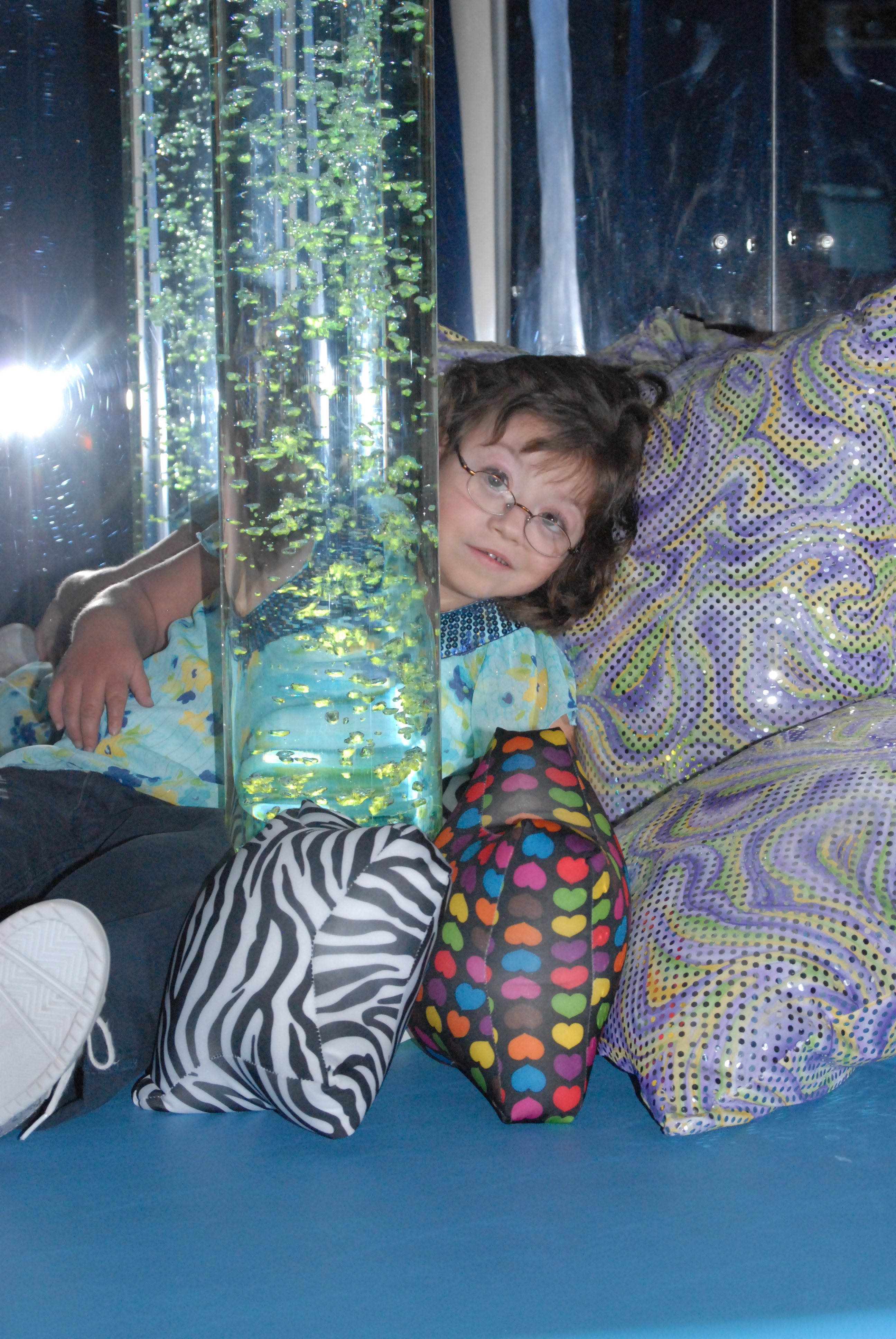A new local treatment space is providing therapy for hundreds of children with developmental, sensory, cognitive and physical disabilities.
The Snoezelen (pronounced Snooze-a-lin) Room, which recently had its grand opening at the 49th Street Community Health Centre, can stimulate or relax young patients through the use of touch, sound, vibration, colour and light.
“The room is designed to gently stimulate some or all of the senses depending on the needs of the child, which in turn leads to improvements in their overall health and development,” said Janis Carscadden, manager of Allied Health Services for Children at the Alberta Health Services facility.
She added controlled sensory input has been shown to be effective in reducing stress and improving concentration, eye-hand coordination and motor function for children with special needs, developmental disabilities, mental illness, post-traumatic stress disorder, autism, chronic pain, stroke, brain injuries, dementia and other conditions.
These rooms were first developed in the Netherlands in the 1970s.
A wide range of health care providers including occupational therapists, physical therapists and speech-language pathologists can use the Snoezelen Room.
“We’ve already seen the difference it can make. Depending on their needs or how the room is being used with an individual child, they can become excited and engaged and be drawn out of their shell to an extent,” said Steve Tetz, a pediatric occupational therapist. “Or with some children it can be used for relaxation. In some cases they relax so much that they can fall asleep.”
He added the room can also encourage children who are non-verbal to express themselves in other ways.
Megan Milne, 6, has cerebral palsy and is already benefiting from the room. The fiberoptic lights and soft music relax her allowing physiotherapists to stretch and strengthen her legs with much less resistance than in previous settings.
“Megan is very happy in here,” said her mother Melisa Milne. “She recently had surgery and her muscles need to be stretched so they don’t lose function, which isn’t always comfortable. Megan isn’t resistant to therapy in this room because it offers so much that keeps her relaxed.
“One of her most favourite things is music, and she likes the soft pillows and lights, so this room just brings it all to her.”
The room was made possible through donations from the Central Alberta Oilmen’s Association which has been providing support for Allied Health Services children’s services since 1994, donating about $55,000 for equipment and programs over the years.
efawcett@reddeerexpress.com



